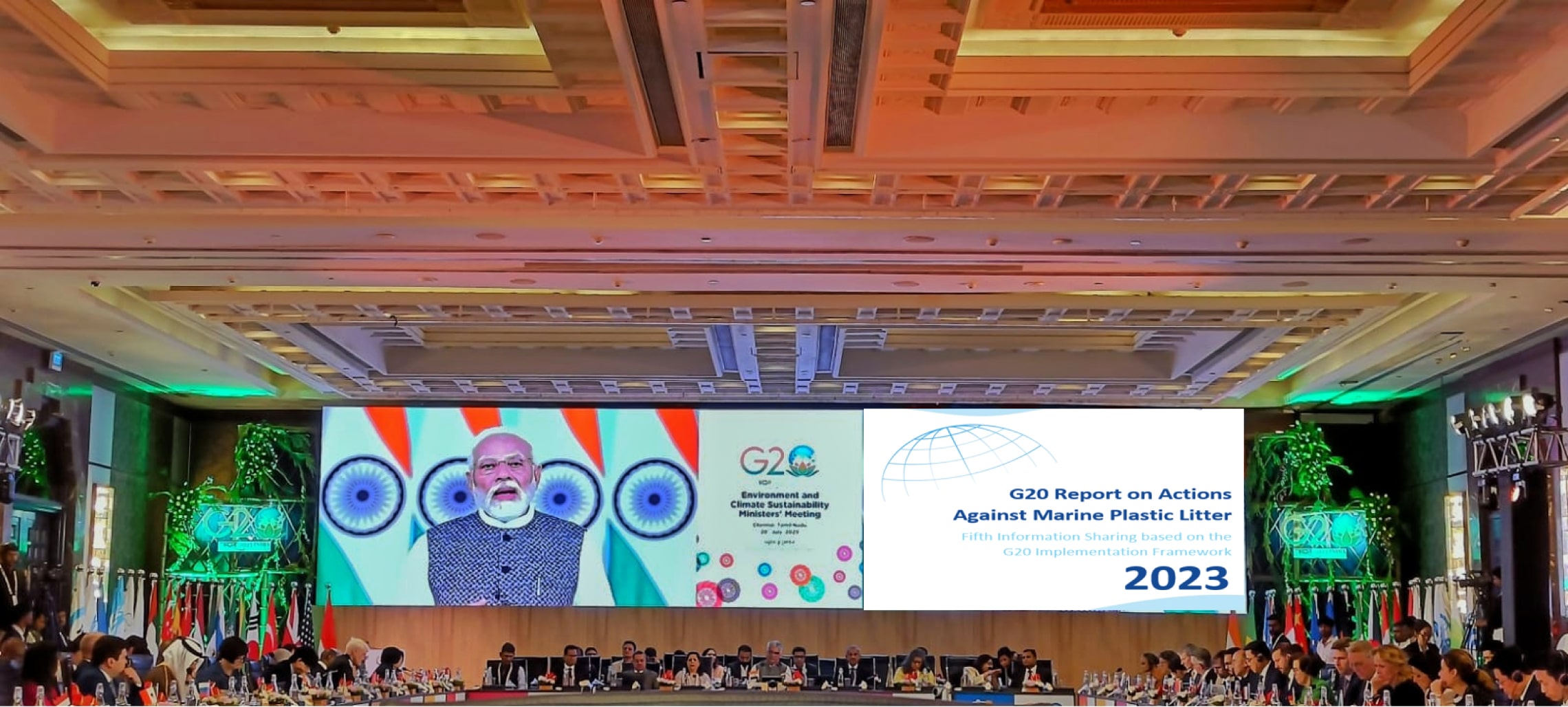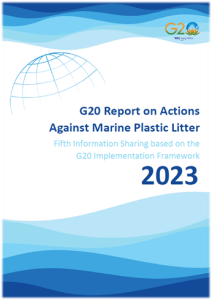The 5th edition of the G20 Report on Actions Against Marine Plastic Litter is based on the “G20 Implementation Framework for Actions on Marine Plastic Litter” established at the G20 Ministerial Meeting in June 2019 in Karuizawa, Japan. This report is a compilation of information, voluntarily shared by the G20 members, invited/other countries and international organisations sharing the Osaka Blue Ocean Vision on policies and measures undertaken to address the global issue of marine litter.
Led by India (G20 Presidency in 2023) and supported by Japan (G20 Presidency in 2019), this Fifth Information sharing compiles submissions from 17 G20 members, 13 invited countries, and 10 international organizasations. Of these, nine responses each from Asia and Europe (excluding the European Union), seven from Americas, two from Oceania, and two from Africa, were received (as of 30 June 2023). This has enabled the development of a broad overview of the initiatives being undertaken around the world that identifies areas for future collaborations to combat marine plastic litter on a global scale.

We would like to thank the countries, regions and organisations for their prompt submission and cooperation. In 2022, countries adopted a resolution at the fifth session of the United Nations Environment Assembly (UNEA-5) which initiated a process to develop an international legally binding instrument on plastic pollution, including in the marine environment. We hope that information contained in this report will support further development of policies, implementation and acceleration of actions on plastic pollution.

Key findings from the 2023 report
It is observed that numerous initiatives have been implemented to address the problem of marine plastic litter by the G20 members, invited/ other countries, and international organisations. Enhanced awareness and active participation of communities is apparent from the assessment. A few key findings are presented below:
Science
- Challenges in data collection related to marine plastic litter have been reported by 77% of the countries and IOs.
- 87% of countries are engaged in research on plastic flows and ocean surface microplastics to address the data gaps.
Policy
- The linkages between marine litter and blue economy and considering policy or legal measures is addressed by 23% of the countries.
- 47% of the countries have regulations on microplastics, however, the effectiveness of these regulations/ policies is not well documented.
- About 50% of the participating countries have indicated initiatives to restrict microplastics in personal care products and in promoting the collection of end-oflife fishing gears.
- The efforts for prevention and reduction in plastic waste generation is gaining huge impetus as 73% of the countries levy charges/ taxes on single use plastics while 63% have completely banned SUPs. Further, 77% of the countries have established frameworks to encourage sustainable and circular product designs and 83% reported having policies to promote plastic alternatives.
- Efforts towards developing Extended Producer Responsibility policies, specifically are highlighted, particularly in- ‒ creating a value chain opportunity for abandoned, lost, and discarded fishing gear (ALDFG) and ‒ encouraging actions by private sector companies to reduce/ sustainably manage their plastic waste.
Practice
- Concerted and systematic efforts towards collection of scattered wastes, littered on the beaches are practiced by 97% of the participating countries. Significantly, 83% of countries have taken action to remove plastic litter from the oceans.
Collaboration
- The importance of public-private partnership at addressing MPL issues was emphasized by 73% of the participating countries.
Capacity
- Designing/ reframing education systems and/ or curriculum to create public awareness on problems related to MPL are developed in 87% of the countries,
- Periodic awareness campaigns are conducted, indicating the importance of community participation in marine litter mitigation efforts.
Opportunities
- There are numerous examples of measures undertaken through international cooperation across the world towards addressing the global issue of marine plastic litter.

